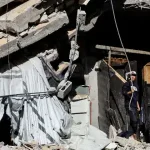During the press conference on Thursday, US State Department Spokesperson Ned Price stated that the United States is Pakistan’s partner but has no influence over the country’s decisions.
The statement was made in response to a question about the terrorist attacks in the Pakistani-Afghan border region and the affected population.
After the banned group Tehreek-e-Taliban Pakistan (TTP) ended the truce with Islamabad, Pakistan has seen a sharp increase in terror incidents, particularly in Balochistan and Khyber Pakhtunkhwa.
Washington has supported Pakistan’s “right to defend itself from terrorism” in light of the recent events, claiming that the nation has suffered greatly from terrorist attacks.
Ned Price, a spokesperson for the US State Department, reiterated that the United States upholds Pakistan’s right to self-defense against the “enduring challenge” of terrorism “emanating from Afghanistan,” which has resulted in the deaths of numerous Pakistanis.
The spokesperson stated that terrorism is a “threat that Pakistan itself faces” and that numerous terrorist attacks carried out by militants operating in the border regions have resulted in significant loss of life.
Naturally, Pakistan is entitled to defend itself. “We take this very seriously, as do our Pakistani partners, of course,” Price stated. “This is ultimately, in some cases, a shared threat to the region.”
Price responded, “When asked whether the United States is encouraging Pakistan to take any action in this regard, Pakistan will act in its own self-interest and in accordance with its inherent right to self-defense when necessary.
Price said that it is common knowledge that the people of Pakistan have endured a tremendous amount of suffering as a result of terrorist attacks when discussing the recent tensions that have arisen between Islamabad and the TTP.
He came to the conclusion that the United States of America continues to press the Taliban to uphold their commitments to counterterrorism and to reduce the capacity of international terrorists to operate on Afghan soil.






